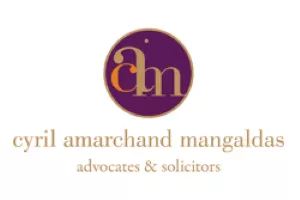One of the most widely litigated issues in India is the disallowance of expenditure incurred on earning income that is exempt from tax. In an endeavor to put the controversy to rest, the Supreme Court ("SC") in the recent case of Godrej & Boyce Manufacturing Company Ltd. v. DCIT,1 has held that expenditure should be disallowed if it is incurred in connection with the earning of tax-exempt income.
Facts
Godrej & Boyce Manufacturing Company Limited ("Taxpayer") is engaged in the business of manufacture of steel furniture, electrical equipments, etc. It is also a promoter of various other companies and invests funds into these companies to maintain control over them.
During the relevant period, the Taxpayer earned dividend income from the Godrej group of companies and certain other sources. A substantial part of the Taxpayer's investment in Godrej group companies was in form of bonus shares. No fresh investment was made during the relevant year and the value of investments had depleted.
The Assessing Officer ("AO") disallowed the interest expenditure of INR 6.92 crores holding the same to be attributable to earning dividends which are exempt from tax. The matter traversed through various appellate authorities and finally reached the doorsteps of the SC.
Issues for Consideration before the SC
- Whether the phrase "income which does not form part of total income under this Act" appearing in Section 14A of the Income Tax Act, 1961 ("IT Act") includes within its scope dividend income on shares in respect of which dividend distribution tax ("DDT") is payable?
- Whether the provisions of Section 14A of the IT Act should be applicable on the facts and circumstances of the instant case, given that the tax authorities have repeatedly and unanimously upheld the deduction of expenses claimed by the Taxpayer over a considerable period of time (which has not been challenged).
Decision
The SC observed that there was a clear and unambiguous purpose to introducing the disallowance provision in question. The legislature intended to check the claim of allowance of expenditure incurred towards earning exempted income in a situation where a taxpayer has both exempt and taxable income. It has also been held that in the case of dividends, deduction of expenses would not be permissible merely on the ground that the dividends received by the taxpayer have already suffered DDT in the hands of the dividend paying company. This is because such income is not included as a part of the total income of the recipient taxpayer. A plain reading of the provision would go to show that the income must not be includible in the total income of the taxpayer.
The SC observed that the literal meaning of the provision, far from giving rise to any absurdity, appears to be wholly consistent with the scheme of the IT Act and the object of levy of tax on income.
Holding that the disallowance of expenditure is applicable in the case of dividend income, the SC also clarified that in so far as dividend income is concerned, it is exempt from tax in the hands of the Taxpayer and not includible in the computation of its total income. The fact that provisions relating to exempt dividend income and DDT of the IT Act were brought in together, deleted and reintroduced later in a composite manner, does not assist the Taxpayer in any way whatsoever.
The SC also went on to clarify that no material difference to the applicability of the disallowance provision would arise even if it is assumed that additional income tax in the form of DDT is a tax on the dividend and not on the distributed profits of the company paying dividends. It was further clarified that this provision does not contemplate a situation where the income is taxable in the hands of the dividend paying company and not the recipient taxpayer, yet the expenditure incurred to earn that income must be allowed to the recipient taxpayer. Any such allowance of expenditure to the recipient taxpayer would be wholly incongruous in view of the IT Act since dividend income is exempt from tax in the hands of the recipient. Thus, it should not be allowed to claim any expenditure on the same.
However, taking into account the facts and circumstances of the case, wherein the Taxpayer was allowed to claim deduction in respect of expenses incurred by it for a considerable period of time, the SC held that even though the principle of res judicata is not applicable to tax proceedings, it is equally important, if not more, to ensure consistency and certainty. The fact that the position adopted by the Taxpayer has been accepted by the tax authorities all these years and has not been challenged or litigated, means that there is no reason to disturb the already established position. Accordingly, the SC held that the Taxpayer should not be liable to pay tax for the past period.
Conclusion
It is a significant decision by the SC which will settle the position on the disallowance of expenditure incurred in earning a tax exempt income. Dividend income is exempt in the hands of the recipient. Hence, such income shall not be considered as a taxable income just because DDT is paid on the same by the dividend distributing company. It has also been clarified that merely because such dividend income is subject to DDT in the hands of the distributing company, the recipient of such dividends cannot be allowed to claim any expenditure incurred in respect of earning such dividend income.
However, it must be noted that the SC has also held in the particular facts of the instant case that for the sake of consistency and certainty, if there are unanimous findings of the lower authorities over a considerable period of time (which have not been challenged or litigated in the past) the same should not be departed from unless there are strong and compelling reasons to do so.
Footnote
[1] TS-176-SC-2017
* The author was assisted by Mehreen Zafar, Associate
Originally published June 7, 2017
The content of this article is intended to provide a general guide to the subject matter. Specialist advice should be sought about your specific circumstances.


